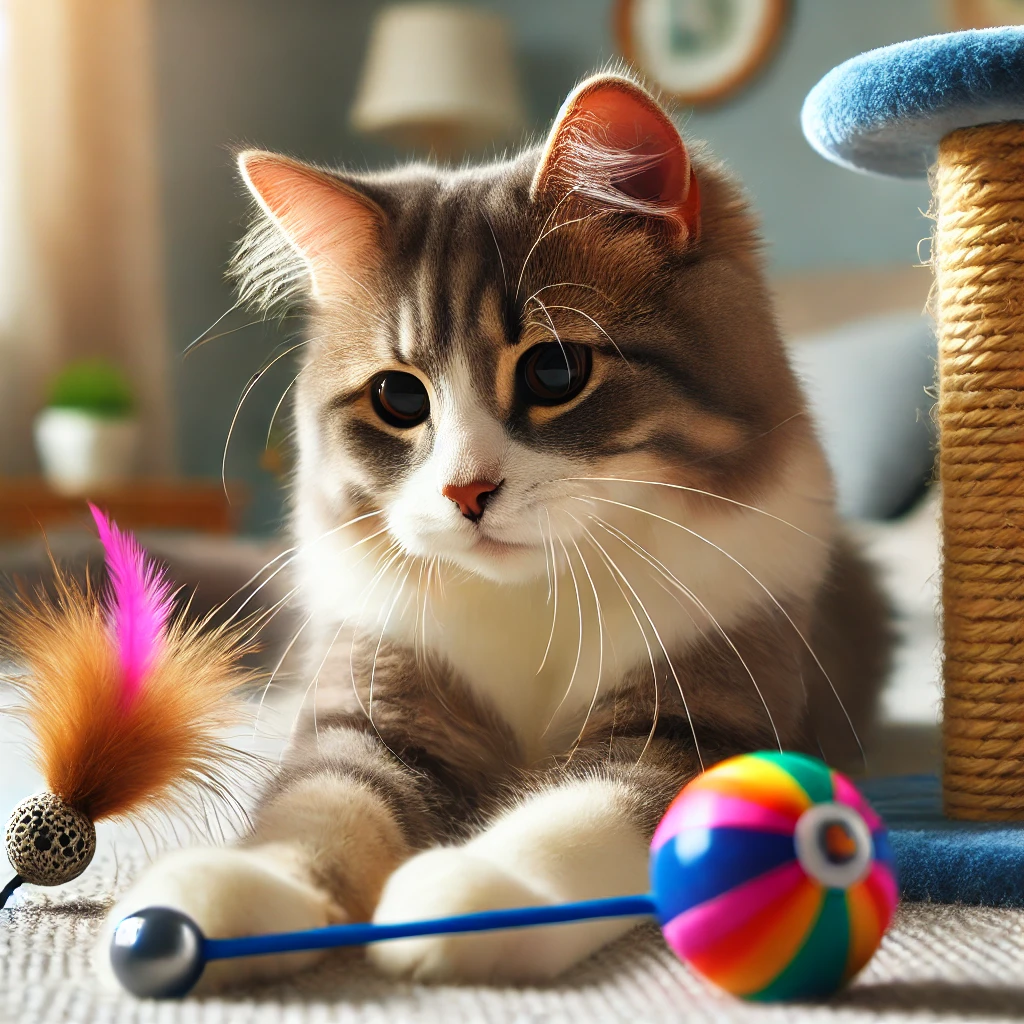Does Your Cat Have Separation Anxiety?

If you’ve ever wondered, “Does my cat have separation anxiety quiz?” you’re not alone. Many cat owners struggle with understanding their furry friend’s behavior, especially when leaving them alone.
Cats, unlike dogs, are often seen as more independent, but they too can experience separation anxiety. The signs can be subtle or even hidden beneath behaviors that seem entirely normal.
You might notice your cat becoming anxious when you leave the house, or even before you leave. You might see them vocalizing excessively, scratching furniture, or perhaps urinating outside the litter box. But how can you tell if these behaviors are linked to separation anxiety?
Luckily, there’s a way to find it out! The “Separation Anxiety Quiz” can help you identify whether your cat is truly suffering from separation anxiety. This quiz will help you assess your cat’s behavior and understand whether what you’re seeing is just normal behavior or a deeper issue. If your cat feels anxious when you’re gone, you’re not alone—and it’s possible to help them manage these feelings.

What Is Separation Anxiety in Cats?
Just like dogs, cats can suffer from separation anxiety, though it’s often harder to recognize. While dogs might act out with destructive behavior when their owners leave, cats are more subtle in showing their distress. You might not come home to a chewed-up sofa or shredded shoes, but your cat might still be struggling.
Cats often show their signs of distress in ways that are less obvious—like excessive vocalizing, hiding, or inappropriate elimination, such as urinating outside the litter box.
If your cat is suffering from separation anxiety, you might notice behaviors such as:
- Excessive meowing or crying, especially when you’re getting ready to leave or after you’ve left.
- Destructive behaviors, like scratching furniture or chewing on items they shouldn’t.
- Excessive vocalizing that may be an attempt to get your attention and reassure themselves.
- Changes in eating habits or refusal to eat.
- Litter box issues, like urinating or defecating outside the box.
By identifying these signs and symptoms, you can begin to address the issue before it escalates. Separation anxiety doesn’t just affect your cat’s behavior—it can also cause stress for you, as you feel helpless watching your cat’s distress.
Signs and Symptoms of Separation Anxiety in Cats
If your cat has separation anxiety, you’ll likely observe one or more of the following signs of separation anxiety:
- Excessive meowing: If your cat’s meowing becomes more frequent and louder when you’re about to leave, it’s a sign they may be feeling anxious.
- Destructive behavior: Cats with separation anxiety may scratch furniture or chew on items to cope with their stress.
- Litter box issues: Sometimes, a stressed cat will stop using their litter box and might urinate or defecate in inappropriate places as a result of their anxiety.
- Clinginess: Your cat might become more clingy and follow you everywhere you go, unable to be left alone even for short periods.
- Over-grooming or licking: This is another symptom of anxious cats, and it can lead to hair loss or skin issues.
These behaviors often start small, but as the separation anxiety becomes more entrenched, the symptoms of separation anxiety can grow worse, and they may have a noticeable effect on both your cat’s health and your living environment.

Does My Cat Have Separation Anxiety Quiz: Is It Time to Take Action?
Wondering if your cat has separation anxiety? Taking a separation anxiety quiz can give you clarity. This quiz asks you questions about your cat’s behavior and daily routines, helping you recognize patterns and potential signs of anxiety. Based on your responses, you’ll receive helpful feedback on whether your cat is likely suffering from separation anxiety.
The quiz can also help you determine the severity of your cat’s anxiety and guide you toward the best course of action. Understanding whether your cat has separation anxiety is the first step in providing them the care they need.
How to Help Your Cat Manage Separation Anxiety
Once you’ve determined that your cat is experiencing separation anxiety, there are several steps you can take to help them adjust and calm down.
- Establish a consistent routine: Cats thrive on routine. If your cat knows what to expect when you leave, it can help reduce their stress. Try to leave and return at the same times each day.
- Provide enrichment: Make sure your cat has plenty of toys and entertainment to keep them distracted while you’re gone. Puzzle feeders, scratching posts, and interactive toys can help.
- Use calming products: Products like Cat Anxiety Medication Over The Counter or calming sprays can help ease your cat’s anxiety. These products work by releasing calming pheromones that mimic natural scents to soothe your cat.
- Create a safe space: If your cat feels overwhelmed, they may seek refuge in a specific spot. Creating a cozy, quiet space where they can retreat to when they need some peace can be helpful.

When to Seek Professional Help
If your cat’s separation anxiety persists, or if their behavior worsens despite your efforts, it may be time to consult with a veterinarian. They can help determine if there are any underlying health issues contributing to your cat’s anxiety and recommend further treatment options. In some cases, medication or behavioral therapy may be necessary to help your cat adjust.
Conclusion: Helping Your Cat Feel Secure
If you’ve noticed signs that your cat feels anxious when you’re away, it might be time to explore whether your cat has separation anxiety.
By using a separation anxiety quiz, you can better understand your cat’s behavior and determine the best course of action.
With the right strategies and products like Cat Anxiety Medication Over The Counter, you can help your cat manage their anxiety and lead a happier, calmer life.
Remember, cats are social creatures, and with a little attention and care, they can learn to adjust to being alone without suffering. Whether it’s through creating a better environment or using calming products, you can help your anxious cat feel more secure and at ease. So, you can take the quiz today, and give your cat the peace they deserve!


